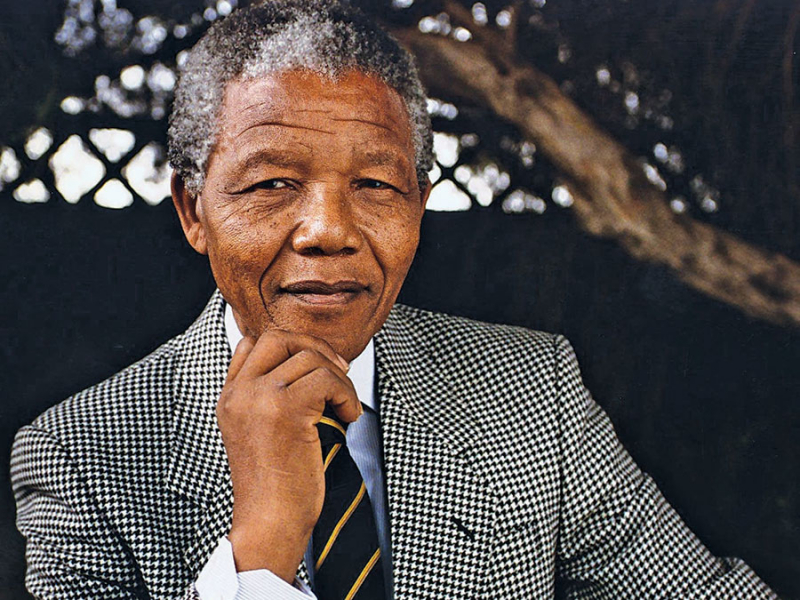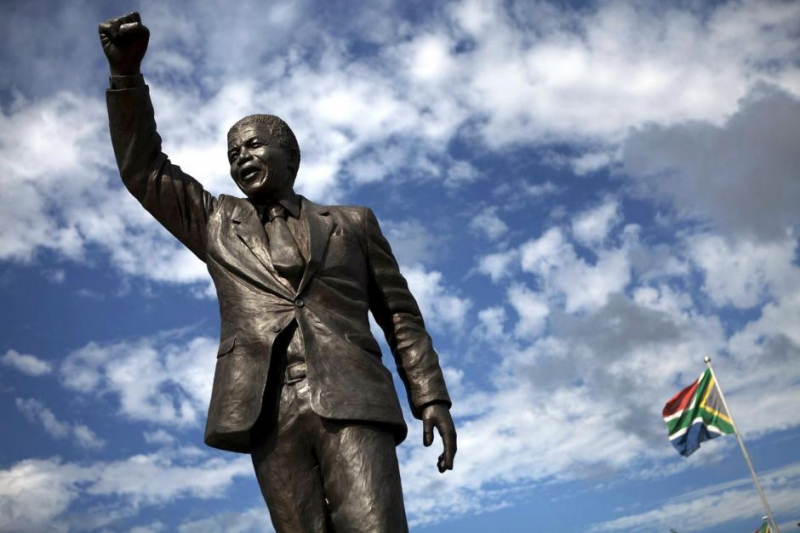Mandela was widely regarded as both the father of the nation and the founding father of democracy
Mandela was widely regarded as both the father of the nation and the founding father of democracy in South Africa at the time of his death. Outside of South Africa, he was a "global icon," according to South African studies scholar Rita Barnard, who called him "one of the most revered figures of our time." According to one biographer, he was a modern democratic hero. He is frequently cited as one of the twentieth century's exemplary anti-racist and anti-colonial leaders, alongside Mahatma Gandhi and Martin Luther King Jr.
Mandela rose to international prominence during his imprisonment in the 1980s when he became the world's most famous political prisoner, a symbol of the anti-apartheid movement, and an inspiration to millions who embraced the ideal of human equality.
Mandela's biographer described him in 1986 as "the embodiment of the struggle for liberation" in South Africa. Meredith claimed that by becoming "a potent symbol of resistance" to apartheid in the 1980s, he had achieved mythical status around the world. Even during Mandela's lifetime, this myth had become "so powerful that it blurs the realities," transforming Mandela into a "secular saint," according to Sampson. Within a decade of his presidency ending, Mandela's era was widely regarded as a golden age of hope and harmony, with much nostalgia expressed for it. Those who criticized his successors, such as Mbeki and Zuma, frequently invoked his name. Mandela gained international acclaim for his activism in overcoming apartheid and fostering racial reconciliation, and he came to be regarded as a moral authority with a strong concern for truth.









